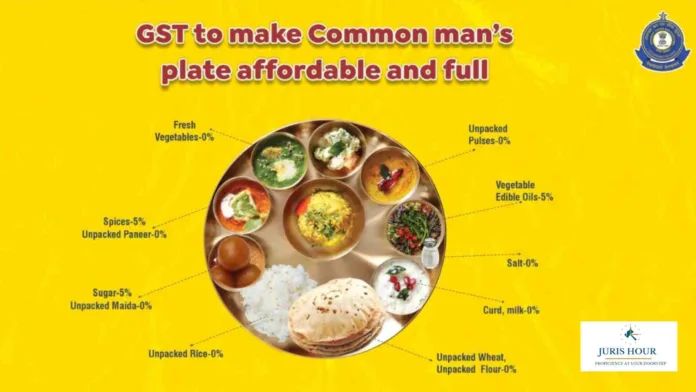In a move aimed at curbing food inflation and ensuring nutritional security for all, the Central Board of Indirect Taxes and Customs (CBIC) has reiterated its commitment to keeping essential food items either tax-exempt or under the lowest GST slab of 5%.
A recently circulated infographic by tax authorities highlights how the Goods and Services Tax (GST) structure has been designed to make the average Indian meal more affordable.
According to the visual, a majority of food staples—such as fresh vegetables, unpacked pulses, rice, wheat, flour, milk, curd, and salt—remain exempt from GST, ensuring that these everyday essentials do not bear any indirect tax burden. Items like unbranded maida, unbranded besan, milk, eggs, unbranded natural honey, and unpacked paneer are also part of this tax-free bracket.
Meanwhile, a minimal 5% GST is levied only on a limited set of commonly used food items, including sugar, edible oils, roasted coffee beans, tea, skimmed milk powder, and domestic LPG. The same slab applies to packed and branded paneer, milk food for babies, and PDS kerosene.
The initiative, branded as “GST to make Common man’s plate affordable and full”, visually presents a traditional Indian thali, emphasizing how most of its components are not burdened by GST. Authorities underscore that this thoughtful structuring ensures nutritional sustenance for low- and middle-income households without causing additional financial stress.
The Central Board of Indirect Taxes and Customs (CBIC) has spearheaded this awareness campaign to reinforce public understanding that the GST regime is not just a revenue tool but also a facilitator of equitable growth and food accessibility.
As inflation and food security remain pressing concerns globally, India’s GST policy on food offers a model where taxation is balanced with social welfare considerations.

